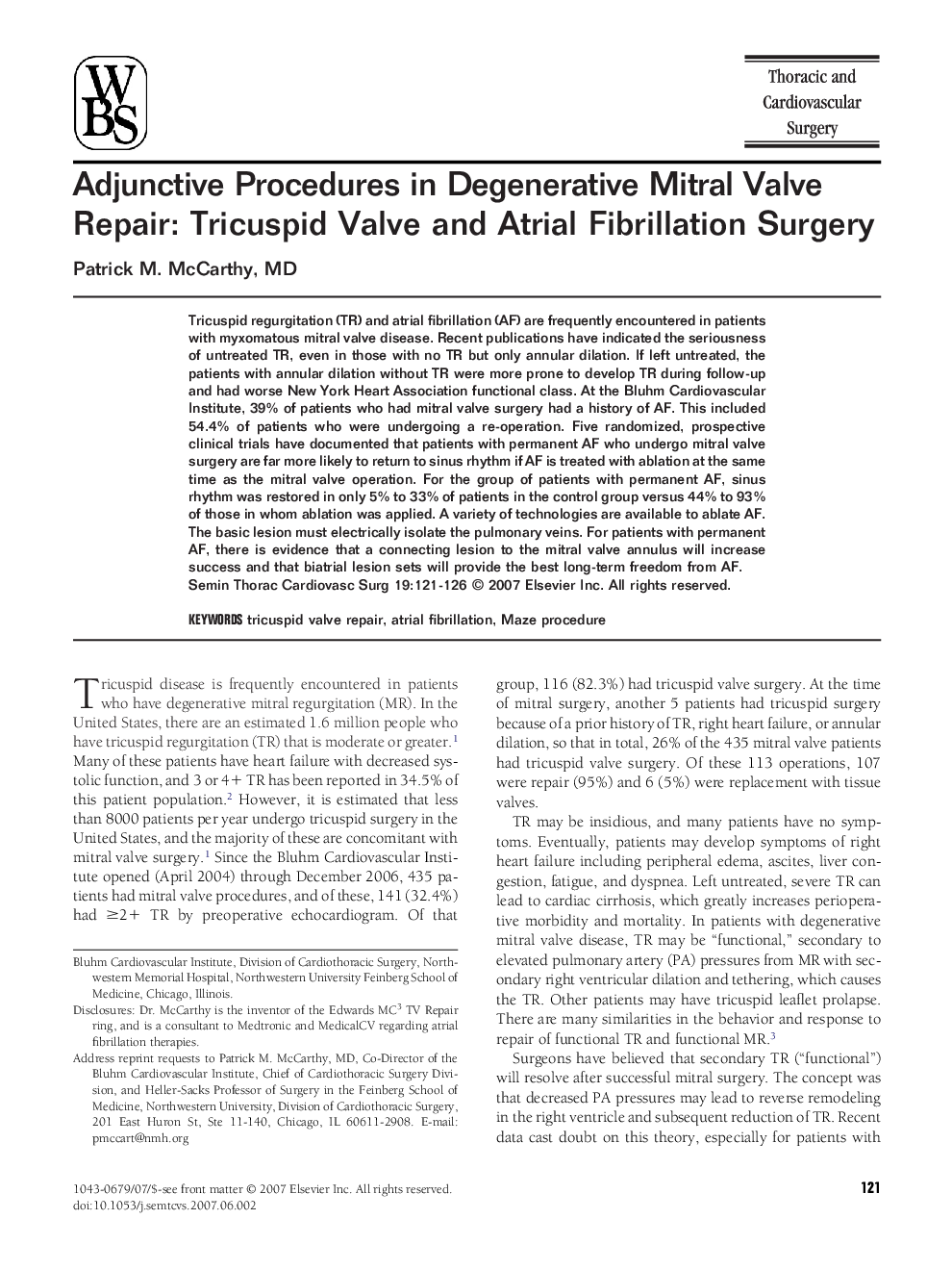| Article ID | Journal | Published Year | Pages | File Type |
|---|---|---|---|---|
| 3025796 | Seminars in Thoracic and Cardiovascular Surgery | 2007 | 6 Pages |
Tricuspid regurgitation (TR) and atrial fibrillation (AF) are frequently encountered in patients with myxomatous mitral valve disease. Recent publications have indicated the seriousness of untreated TR, even in those with no TR but only annular dilation. If left untreated, the patients with annular dilation without TR were more prone to develop TR during follow-up and had worse New York Heart Association functional class. At the Bluhm Cardiovascular Institute, 39% of patients who had mitral valve surgery had a history of AF. This included 54.4% of patients who were undergoing a re-operation. Five randomized, prospective clinical trials have documented that patients with permanent AF who undergo mitral valve surgery are far more likely to return to sinus rhythm if AF is treated with ablation at the same time as the mitral valve operation. For the group of patients with permanent AF, sinus rhythm was restored in only 5% to 33% of patients in the control group versus 44% to 93% of those in whom ablation was applied. A variety of technologies are available to ablate AF. The basic lesion must electrically isolate the pulmonary veins. For patients with permanent AF, there is evidence that a connecting lesion to the mitral valve annulus will increase success and that biatrial lesion sets will provide the best long-term freedom from AF.
